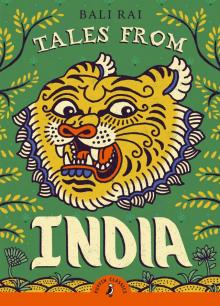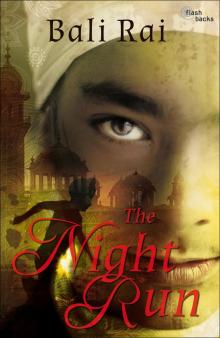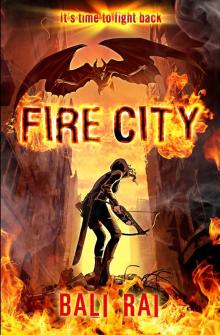Rani and Sukh Read online
Page 10
GIANNI-JI SAT, CROSS-LEGGED, in the gurudwara and prayed. Dusk was falling and there was still no sign of Billah. Although he had spoken to the sarpanch, Thekkar Singh, the priest had yet to speak to Kulwant’s father. Now, as he waited, he prayed, hoping that he would be able to carry out his mission with the blessing of God. Even with such backing he knew that it would be difficult to control Harbhajan Sandhu’s anger. Punjabi culture deemed that a father must protect his daughter’s honour, no matter what. And though the priest had no intention of telling Harbhajan of the youngsters’ affair, he felt sure that it would come to light. For what other reason would a priest approach a father in such a manner? Gianni-ji hoped that despite all of this, the girl’s father would remain calm and see sense. It was a sensible match in many ways, the youngest children of two large jat clans bringing both families together. The Bains and the Sandhus were already well acquainted with one another. A marriage between Billah and Kulwant would merely cement that relationship. Make it stronger.
Finishing his prayer the priest stood slowly, his knees popping and creaking, and made his way to the side of the building where his cramped quarters were housed. He opened the stout wooden door and walked out into the courtyard. The sky was turning. Layers of teal and grey streaked the blue and the air was cooler all around him. It would be dark very soon and he had yet to speak to Billah. He sat down on a manjah and thought about the sarpanch’s response. Thekkar Singh had at first been taken aback by the news, unsettled, until the priest had reminded him of a similar situation that had involved Thekkar’s own brother many years earlier.
‘And you say that this is completely innocent?’ the sarpanch had enquired.
‘I did not say that, bhai-ji. By its very nature, this affair cannot be innocent. But it is not beyond repair.’
‘I doubt Harbhajan Sandhu will see it so,’ he’d replied.
‘It is the only way to stop a feud, bhai-ji. The only way.’
The sarpanch had considered this for a long while before agreeing. ‘In the interests of the village I will back your proposal. We cannot have feuding families here,’ he’d said.
‘It will bring the families together – rather than tear them apart.’
And so they had settled it. They had agreed to go to the girl’s father together to suggest the union. They would tell him that the two youngsters had fallen for each other, that Billah wished only to do the right thing as a jat, and that they agreed with him. Surely, they would say to Kulwant’s father, it is better to create a union between the two than to deny them? After all, both were the right age, the right caste, from similar families. It would be a solid union.
As he sat and waited the priest realized that his thoughts were repeating themselves, perhaps to reassure him about his intended actions. Whatever the reason, he was aware that Billah was late. There was very little time before darkness. He decided to give the boy a few more minutes. If he still hadn’t arrived the priest would have to go and find him. Where had Billah got to?
‘Are we destined to live as criminals then?’ asked a resigned Kulwant, on hearing Nimmo’s news.
‘There is no other way,’ said Nimmo, looking away. ‘You are carrying a child and it will show itself in the roundness of your belly before too soon. There is no way that you will be married to Billah before that happens, even if your father allows you to marry him.’
Kulwant wanted to believe that Nimmo was wrong. She wanted to believe that there was a future for her and Billah in the village, among their families, a life lived in happiness and laughter. A life that did not mean running away to face an uncertain future in some far-off place. But she knew that she was hoping for a miracle. Nimmo was right. There was only one way out of the situation facing them – flight.
She looked at Nimmo and tried to smile, resigned to the journey that fate was unfolding in front of her. ‘If that is what my kismet demands,’ she said, ‘then so be it.’
Nimmo put her arm around Kulwant and tried to reassure her. ‘It is the will of the Lord,’ she told her.
‘Who are we to try to comprehend His ways?’ replied Kulwant, tears beginning to fall.
‘Hush, child, hush,’ comforted Nimmo. ‘At least you will have your love with you. Billah is a fine young man. He will not let you suffer.’
Kulwant wiped away her tears and buried her head in the old woman’s shoulder, wishing that she could do so with her own mother – a mother who would be wondering where she had got to very soon.
‘How long did Billah say he would be?’ she asked Nimmo.
‘He did not. He merely said that he would be quick and that you should prepare to leave tonight.’
‘Then prepare I must,’ said Kulwant, pulling away and getting up.
‘It is growing dark,’ warned Nimmo. ‘Come, we must hurry – God willing, Billah is already on his way back here.’
Nimmo told Kulwant to wait and left the room, returning a few minutes later with a bundle rolled in cloth and tied with hemp rope. She handed it to Kulwant. ‘It’s not much,’ she said. ‘Just some clothes and a little money to help you along.’
Kulwant looked at Nimmo wide-eyed. ‘No, I cannot take your money. You are too poor to be giving what little you have away,’ she protested.
Nimmo smiled at her. A warm, loving smile. She shook her head. ‘It is not very much, child,’ she said. ‘Enough to buy food for a few days. Take it and go with my blessing. I only wish that fate had smiled more kindly upon you both.’
‘Thank you, Nimmo,’ replied Kulwant, touched at the generosity of such a poor woman.
‘Now, where has this man of yours got to?’ said Nimmo, ignoring Kulwant’s gratitude.
‘I’m sure he will be here soon,’ answered Kulwant. ‘I’m sure . . .’
The last remnants of daylight were beginning to fade on the horizon as Gianni-ji made his way to the Sandhu household. He had given up waiting for Billah, assuming that the boy had been tied up on some errand with his father. It was the way of country life. Appointments were often missed due to unexpected situations – a missing water buffalo, a field fire and suchlike. Having already arranged to meet Thekkar Singh at the Sandhu residence at nightfall, the priest knew that he could afford to wait no longer. He would have to speak for Billah rather than let the boy ask Kulwant’s father himself. Instead of his original plan, he had decided to ask Harbhajan Sandhu to go with him to the Bainses’ house, in order that the two fathers might discuss the situation in the presence of the boy and reach a peaceful agreement.
The priest’s eyes were old and beginning to fail, the edges of his peripheral vision becoming lost in a milky cloudiness, and as he walked, the path in front of him grew harder and harder to see clearly. In his haste he stumbled twice, catching his feet in potholes, but both times he stayed on his feet, more through the will of God than any sound judgement of his own. Ahead of him the village sat in darkness, apart from what seemed to be torchlight coming from behind a stone wall enclosure. As he approached another torch appeared to have been lit, followed by another and then another.
The priest entered the village proper and walked down the wide dust track that separated the jat houses from those of the chooreh and chamarr, the lower castes. A shout went up suddenly. And then another. Startled, the priest wondered what was happening, his fuzzy hearing unable to make out what was being said. And then out of the darkness emerged a group of men, who ran out from the low-slung wooden houses that made up the lower caste quarter, carrying burning torches which smoked and smelled of thick oil, shouting to the other residents.
‘LOOK ABOUT! DHEKKO JI!’ they shouted.
The priest called out to one of the men, Meni, asking him what all the fuss was about. Meni shook his head, as though gravely concerned about something. ‘Gianni-ji,’ he cried dramatically, ‘there is villainy afoot!’
In the flicker of torchlight the priest could see the whites of Meni’s eyes, the teeth missing from his mouth. He sighed. ‘Meni – for the love of God tell me wha
t it is. And try to do it calmly,’ he told him.
‘Hai, Gianni-ji – it is terrible. So terrible. A father is undone this night!’ jabbered Meni excitedly and yet at the same time with an air of gravity.
The priest’s heart nearly escaped out of his mouth. He looked away. ‘Undone, you say?’
‘Yes, Gianni-ji. Kulwant Sandhu is missing. She has not been seen since the morning.’
The priest’s stomach somersaulted and his legs felt as though they were made of water. ‘Where is Harbhajan Sandhu?’ he asked hurriedly.
‘We are going to his house now, Gianni-ji. To help him search the village,’ replied Meni.
‘Satnam Waheguru!’ shouted the priest, calling out to God. ‘I must speak to Harbhajan!’
‘Come, let us go to him,’ replied Meni.
The priest followed the crowd, the flames of torch and oil lamp throwing eerie shadows within the hazy bubble of light which floated around and above them all. The priest held onto his rosary beads, thumbing them at speed, each time offering a prayer to God, hoping that he was not too late to save Billah and Kulwant.
‘Ek Onkar, Satnam,’ he mumbled over and over to himself as he approached the Sandhu family gully, where every Sandhu – uncles, cousins, fathers and brothers – had lived for three generations. The smell of burning oil assaulted his nose. A sense of foreboding turned his blood into ice water. Had Billah run away before he, the priest, could speak to Kulwant’s father? Had he taken her with him? And what, he thought, as he heard the cries of Kulwant’s mother and the curses of her father, had the sarpanch said to them, assuming he was already there?
Meni walked up to the priest. ‘There is villainy here,’ he said, almost as though he relished the tumult all around them. ‘Mark my words, Gianni-ji. I saw this night in the clouds, in the omens, as the birds flew in circles this morning.’
The priest shook his head at Meni’s superstitious nonsense, ready to tell him that God did not send omens in the clouds, nor in the erratic flight of winged animals. But then they turned a corner and found themselves at Harbhajan Sandhu’s door, faced by the man himself, standing next to his four incensed sons. Harbhajan’s face looked as though it had been carved from stone. Cold, emotionless, hard stone.
‘Gianni-ji,’ said Kulwant’s father, almost in a whisper. A whisper full of menace. ‘Tell me – why do you seek to cut off my nose . . . ?’
THE BAINSES’ HOUSE was split into two sections on the lower level. Entering through a huge wooden gate, visitors would come into an open courtyard with a buffalo pen to one side and a water pump to the other, next to a stone outhouse. Beyond this, past two mango trees and a guava, was a covered area, one side a rasoi, where all the cooking was done, and the other an outdoor dining space. And past this point were four rooms, a stone stairwell to the first floor, and a side room that was often locked. It was locked because it contained valuable papers and Indian gold and rupees belonging to Billah’s father, stored in an iron trunk.
Billah searched one of the other ground-floor rooms, trying to find a bunch of keys that he knew was somewhere around. He had seen his father put it away on many occasions but never in the same place twice. Gulbir Bains was by nature a cautious man, and he had heard many stories of bandits riding into villages and looting homes at gunpoint. Hence his concealment of the keys to his family’s wealth. Billah had no idea where they might be but he knew the kind of places his father might put them and it was here that he was searching, all the while conscious of the fact that his family were outside, gathered by the rasoi, waiting to eat, as moths fluttered in the light of the oil lamps that were hung from the walls, throwing dancing shadows.
Billah knew, as he went about his business, that what he was trying to do was wrong. That stealing from his father would put the final nail in the coffin in which his reputation would be buried. Yet what choice did he have? His father would be able to make the money back quickly enough, but what good was Billah to Kulwant if they ran away with nothing but the clothes on their backs? Sure in his own mind that God would forgive him, he continued to search, grimly aware that he had very little time left before he would have to make his escape with Kulwant. Darkness had fallen and he knew that Kulwant’s family would by now be looking for her, angry and vengeful in their mood. He was wondering whether the priest had spoken to Harbhajan Sandhu when he heard his father call to him. He considered ignoring him but quickly realized that it would do no good. His brothers had seen him enter the room and there was only one exit. Instead he resigned himself to escaping without any money at all, and he left the dark, musty room, telling himself that his fate was now in the hands of God. If this was His design for both Billah and Kulwant, then so be it.
‘What were you doing in there?’ asked his father, eyeing him suspiciously.
‘Nothing,’ replied Billah. ‘Just looking for something.’
‘Well, forget whatever it is and sit down with your father and brothers like a man,’ said Gulbir Bains, wondering when his wayward son would grow up.
Billah told him that he wanted to speak to his mother and walked over to where she sat on her haunches with Gian, rolling out and baking chapattis.
‘Are you well, my son?’ asked his mother, as he crouched down next to her.
‘Yes, Mother – why do you ask?’ he said, smiling, hiding the pain that he was beginning to feel deep inside at the thought of leaving his family, particularly his mother and sister, under such circumstances.
His mother wiped a flour-covered hand on her clothing and then stroked his cheek with the outside of her hand. ‘You look as though you have seen a ghost,’ she told him with maternal concern.
‘I’m well, maa-ji. May God bless you.’
His mother gave him a quizzical look, wondering what he was getting at. But she let it go, putting it down to the changes that his adolescent mind seemed to have been going through recently. Instead she smiled at him. ‘You know that, even as a man, you can tell me if something is wrong?’
‘Han-ji,’ he replied, ‘I know. I will always love you, Mother.’
This time his sister gave him a strange look, and then turned to their mother. ‘Maa-ji, I think my brother has been touched by some black magic,’ she said, teasing Billah with her laughter.
Their mother shrugged it off. Her son had always been a little strange – from making up little songs as a two-year-old to crying the first time he saw his father beat a lazy buffalo. She put it down to the Will of God and left it at that.
Billah was busy rubbing flour into his sister’s face when she told him to stop. ‘You don’t do that to your elders,’ she scolded him playfully. ‘Idiot. Go and sit by your brothers . . .’
Billah put his arms around her. ‘May you live for ever, maa-ji,’ he said to her, his unguarded show of affection catching her by surprise.
She laughed. ‘Dhuffa Hor, idiot!’ she managed to say despite her laughter. ‘Go and sit down. Your food will be ready soon.’
Billah got up and walked over to his brothers, quickly wiping a single tear from his eye, hoping that he had not been seen, as a huge well of emotion threatened to engulf him. He would never see his mother again once he left the house, he knew that. Nor his sister, nor Resham, nor his older brothers. Disavowed by his father and left to fend for himself, Kulwant and their child. He cursed his kismet for forcing him down such a path before sitting down beside Resham, working up to the point when he would find an excuse to go outside and never return.
Gianni-ji stood with his head held high, his eyes burning into those of Harbhajan Sandhu. The sarpanch had beaten the priest to Kulwant’s father and told him of Billah’s request. As expected the father’s rage had overcome his rationality and he had become abusive, casting doubt over the legitimacy of Billah’s grandfather and calling his mother a whore. The sarpanch had tried to calm him down but he had refused to believe that the affair was an innocent one, calling for his sons to go and find the Bains boy and avenge their sister’s honour with blood.
/> And then Kulwant had not returned from her chores. As dusk had given way to the pitch darkness of night, Kulwant’s mother had become hysterical and her father even more livid. A huge cry had gone up in the village to help find Kulwant, and Harbhajan had demanded to see the priest. Gianni-ji had duly obliged. Now they were standing face to face, as two bulls would, ready to fight over a herd of cows. Gianni-ji was desperately trying to calm Harbhajan but it was all in vain.
‘If you were not a man of God, Gianni-ji, I would separate your lying tongue from your mouth with my own hands,’ shouted Harbhajan, as they stood in the Sandhus’ courtyard surrounded by other men from the village.
‘Your words hurt me grievously, Harbhajan, but you must try to understand—’ started the priest for the fourth time, only to be cut off by Kulwant’s father once more.
‘Understand? If you had a daughter you would know how heavy the burden is that a father must carry!’
‘She has done nothing wrong,’ lied the priest, hoping that God would forgive him.
‘That is what you say, but I tell you that I know it to be different! Where is this boy who asks for my daughter’s hand and then kidnaps her away?’
‘We do not know that he has,’ said the sarpanch sternly, asserting his authority in the village pecking order, such as it was.
‘You and this supposed man of God may say what you like,’ shouted Harbhajan, ‘but I will not be denied.’
‘Mind your words, bhai,’ answered the priest, suddenly angry. ‘You have not the first idea of what it means to be a Sikh.’
‘Is this shameful deceit what it means?’ demanded Harbhajan.
The priest shook his head in sadness. ‘The shameful deceit is yours, Harbhajan. You, who call yourself Singh but know nothing of your supposed religion.’
‘And what do you mean by that?!’ raged Harbhajan.
‘Even if they have done wrong, bhai-ji, it is not for us to judge them. That is the domain of our Lord,’ answered the priest, immediately sorry that he had spoken.

 The Royal Rebel
The Royal Rebel Mohinder's War
Mohinder's War Starting Eleven
Starting Eleven Glory!
Glory! (Un)arranged Marriage
(Un)arranged Marriage Tales from India
Tales from India The Night Run
The Night Run Voices: Now or Never
Voices: Now or Never Rani and Sukh
Rani and Sukh Stars!
Stars! Web of Darkness
Web of Darkness The Crew
The Crew Fire City
Fire City The Last Taboo
The Last Taboo